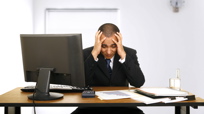News
The latest news on this change — carefully culled from the world wide web by our change agents. They do the surfing, so you don't have to!
STOP STRESSING!

Since everyone responds to stress so differently, it’s been difficult for researchers to show a direct link to its ill effects on the heart. However, many examples illustrate the connection: Hospitals are flooded with heart attack victims after a jarring disaster such as an earthquake and spouses who suddenly lose their loved ones are more likely to suffer heart attacks. So much anecdotal evidence has popped up that researchers are calling for doctors to include stress screenings for people who are at high risk for heart disease.
In fact, research reports on stress and heart disease and heart-related fatalities have flooded medical journals during the last couple of months. One Canadian report found that first-time heart-attack patients who returned to chronically stressful jobs were twice as likely to have a second attack as patients who found their work to be relatively stress-free. In another British study, researchers said that those with rocky intimate relationships had a 34% higher risk of heart disease than those with more stable relationships.
Since your doctor may not have the time to talk to you about the stressful aspects of your life, it's up to you to find ways to destress. Meditation and yoga are the latest panacea for almost any health diagnosis, but their effectiveness has yet to be scientifically proven.
Do you find meditation and or yoga helpful for reducing stress? What other techniques have helped you? In today’s hectic world, how can you effectively communicate the amount of stress you experience to your doctor? [Time]







